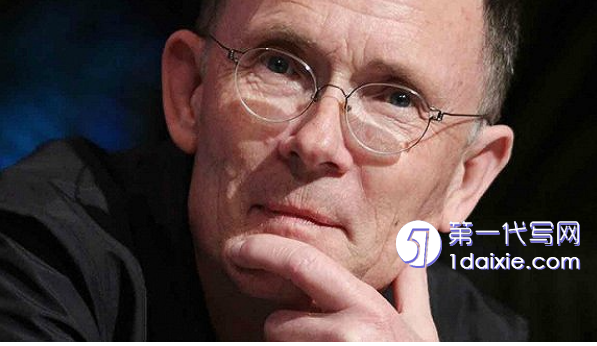本文是一篇英语毕业论文,本文选取吉布森经典的赛博朋克小说:“蔓生”三部曲和短篇小说集《全息玫瑰碎片》为研究对象,借助了法兰克福学派赫伯特·马尔库塞的科技异化理论,分别从科技异化下的单向度社会、科技异化下的单向度的人和人类摆脱科技控制的探索三个角度对小说中的科技异化现象进行深入研究。
CHAPTER ONE INTRODUCTION
1.1 William Gibson and His Cyberpunk Novels
As an emerging literary genre, science fiction is more than an imaginative vision or a simple prediction of the future, it also serves as a powerful metaphor for the present. Using scientific language, authors visualize people’s lives from a prophetic perspective, as well as explore the relationship between human beings and society. SF encourages readers to reflect on current social issues and think about the development of technology in the future.

SF was born in the 18th century as a result of the rapid development of science and technology. The 19th century was a development epoch for SF and a number of masters of SF came to the fore during this period, such as Jules Verne and H.G.Wells, etc. The 1950s were a golden era for the development of SF. During this period, Alfred Bester, A. C. Clarke and other founding fathers of SF wrote articles for two famous SF magazines Amazing Stories and Astounding. Many classic SF novels were also published during this time. In the 1960s, the British SF novelist Christopher Priest used the new wave “for an sf almost equally disruptive, existentially fraught and formally daring, that evolved around the British sf magazine New Worlds in the mid to late 1960s” (Broderick 50) and had been recognized by many SF writers. SF of this period began to avoid traditional themes and focus on the relationship between man and technology. In the 1980s, cyberpunk emerged as the latest evolution of SF.
1.2 Marcuse and His Theory of Technology Alienation
Herbert Marcuse (1898-1979) was a German-American philosopher, sociologist, and political theorist, associated with the Frankfurt School. Marcuse was known for his radical critical theory among the classic Western Marxist writers. In his writings, he criticized capitalism, modern technology, and entertainment culture. His representative works include Eros and Civilization (1955), One-Dimensional Man (1964) and Counter-Revolution and Revolt (1972), etc. And the most influential and representative one was One-Dimensional Man, in which he systematically expounded his technology alienation theory. Marcuse believed that technology had created an affluent industrial society with abundant material resources. Technology, however, did not bring mankind freedom and liberation, but enslaved them to production and consumption. He criticized that technology had deprived people of their sense of rebellion and made them submissive to the existing system, creating one-dimensional men and a one-dimensional society.
Engels points out that theoretical thinking, including our own, is a product of history. At different times, it takes on totally different forms and contains entirely different contents. (Wang Siqing 8) Marcuse lived in turbulent times. He witnessed people’s suffering during the three industrial revolutions and two world wars, and he was eager to make a difference. His theory of technology alienation was also born during this turbulent period.
CHAPTER TWO THE ONE-DIMENSIONAL SOCIETY UNDER THE INFLUENCE OF TECHNOLOGY ALIENATION
2.1 Social Aspect: Technology Is Power
Marcuse claims that “the prevailing forms of social control are technological in a new sense” (ODM 11). In traditional industrial societies, people have been primarily subordinated to the state apparatus, which is both productive and destructive. Often, this has been accompanied by coercion, including the use of the armed forces and police. However, the developed industrial society “distinguishes itself by conquering the centrifugal social forces with Technology rather than Terror” (xl). Modern society controls and manages human beings in a different way, which does not rely on laws, prisons and other state apparatuses. People live in a zone controlled and monitored by the network due to the rapid development of technology and widespread use of high-tech achievements, but at the same time, the improvement of living standards has also obscured the surveillance of people by the network. The people of advanced industrial societies are gradually subordinated to technological rationality and live in a new totalitarian society without realizing it.
Technology’s control over human beings is exemplified in the relationship between technology and power. Michel Foucault remarks that “‘Discipline’ may be identified neither with an institution nor with an apparatus; it is a type of power, a modality for its exercise, comprising a whole set of instruments, techniques, procedures, levels of application, targets; it is a ‘physics’ or an ‘anatomy’ of power, a technology” (215). In other words, knowledge has become the new source of power. Knowledge is power, especially technological knowledge. There is a typical “field of power” depicted in Gibson’s cyberpunk novels where everyone is watched and controlled by technological controllers in a super Panopticon. Super Panopticon theory is put forward by Mark Poster who combines the Panopticon theory of Foucault with the emergence of databases in developed capitalist society. The Panopticon is an enclosed, segmented space where people are monitored at all times. There, everyone is embedded in a fixed position, even the smallest movements are monitored, and everything is recorded. With the advancement of electronic computers, the Panopticon has evolved along with them, and the ability to monitor human behavior has also improved over time. Power can reach the whole society through the “capillary” extension of the network as long as people are using it. Cyberspace is just like the super Panopticon and it has the highest level of surveillance.
2.2 Economic Aspect: Technology Conspires with Capital
Marcuse states that “the equation: technical progress = growing social wealth (the rising GNP!) = extended servitude is the law of capitalist progress” (CRR 3). This equation still holds true in modern society. With the rapid development of technology, productivity has increased dramatically, resulting in increased wealth in society. In other words, the advancement of technology makes it possible to create more wealth. It should be noted, however, that the continuous integration of capital and technology has increased capital’s exploitation of ordinary people. The rich people enjoy leisurely afternoon tea and seek ways to live forever while the majority of the world’s population lives in poverty, sexuality, violence and struggles to survive. Technology is monopolized by a few individuals and groups, further deepening the control and subjugation of human beings. It confirms the characteristics of cyberpunk novels - the coexistence of “high technology” and “low life”.
Firstly, technology helps capital expand further. In Neuromancer, Molly shares a piece of her work experience, renting her body to make money. The brothel has become more advanced with high-tech enhancements: the nerves of women are cut off by high-tech chips, so the owner of the body is unconscious while the flesh is being used. This kind of brothels are very popular in Sprawl city. Lots of women who are short of money choose to rent their bodies temporarily as “meat puppets”. As Molly reveals this kind of business is also profitable. “‘The boss had a whole little clientele going for me. Nothing’s too good for Molly, the boss says, and gives me this shit raise.’ She shook her head. ‘That prick was charging eight times what he was paying me’” (Gibson, N 158). The boss makes a lot of money as a result. However, as capital and technology have expanded, exploitation has increased too. Then the boss of the brothel closes the software and rents Molly’s body in specialty markets in order to make more money. Molly wakes up when her body is “into this routine with a customer” (Ibid.) because the customer disturbs her cut-off chip. She calls this experience is a bad dream. The customer is a senator, a gross fat man. When Molly wakes up, she finds the senator accidentally killed the other prostitute and the room is full of blood. Molly is so scared that she kills the senator. Therefore, Molly is being hunted for this reason.
CHAPTER THREE THE ONE-DIMENSIONAL MEN UNDER THE INFLUENCE OF TECHNOLOGY ALIENATION ............................... 26
3.1 Replication of Humans and Religion ............................. 26
3.2 Fabrication of False Needs ......................................... 29
3.3 Estrangement of Human Relationships ............................. 33
CHAPTER FOUR ATTEMPTS TO BREAK THE CONTROL OF TECHNOLOGY ALIENATION ............................... 37
4.1 Love .................................. 37
4.2 Art ......................... 40
CHAPTER FIVE CONCLUSION ....................................... 45
CHAPTER FOUR ATTEMPTS TO BREAK THE CONTROL OF TECHNOLOGY ALIENATION
4.1 Love
Freud’s theory of sex is a great inspiration to Marcuse. He believes that “the history of man is the history of his repression. Culture constrains not only his societal but also his biological existence, not only parts of the human being but his instinctual structure itself” (Marcuse, EC 12). In advanced capitalist societies, basic repression is intertwined with surplus repression. In order to survive, human beings gradually learn to repress their instinctive desires and obtain the resources they need through work. At the same time, in a society where egoism prevails, people act only in their own interests, disregarding others. There is a lot of aggression and violence between posthumans.

To achieve real freedom, Marcuse advocates establishing a civilization that is non-repressive and liberating the Eros of the human beings. Marcuse sublimates Freud’s sexual instincts to Eros. He believes that Eros is the essence of human nature. Marcuse makes a detailed comparison and distinction between sexuality and Eros. He points out that sexuality is a sexual impulse to possess the body of the opposite sex, involving the genitals. And the indulgence of sexuality can only make people obtain short-term happiness. Eros is the expansion and qualitative improvement of sexuality, which marks the expansion of pleasure from the genitals to every part of humans. It is love for the whole body. (Wang Fengcai 23).
CHAPTER FIVE CONCLUSION
Gibson is called a prophet since he successfully predicts future technology in his cyberpunk novels. He creates the term “cyberspace”, a space that is already present in people’s real lives. Although his imagery is not exactly the same as today’s Internet, it is very close. With the development of high-tech companies such as Google, Apple, Sony and artificial intelligence such as ChatGPT, people are closer than ever to the scenarios Gibson describes. Gibson, however, is not concerned with the creativity of the latest technology, but rather with its negative impact on society and humans. He chooses to use science fiction to warn people of the terrible effects of the rapid growth of technology on society.
Gibson not only predicts the new technologies people use today, but also the disruption to human society, and the alienation they will bring to human beings as well. In his cyberpunk novels, Gibson constructs a society controlled by technology, where economy, politics, and culture are all governed by technological rationality. The level of power acquired is determined by technology; the amount of wealth owned depends on the possession of advanced technology; art becomes a tool for making money, losing its negativity and criticism nature, and human beings are further subordinated to technology. Technology and the rapidly developing economy can satisfy humans’ false needs, resulting in their losing their rebellious spirit and turning into one-dimensional men. Meanwhile, people are dominated by profits and neglect the maintenance of their relationships. Although technology has greatly improved the lives of most people, highly developed technology has become a means of controlling human beings, which is contrary to its original purpose.
reference(omitted)
